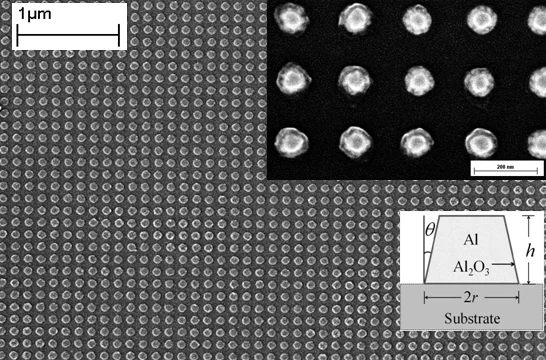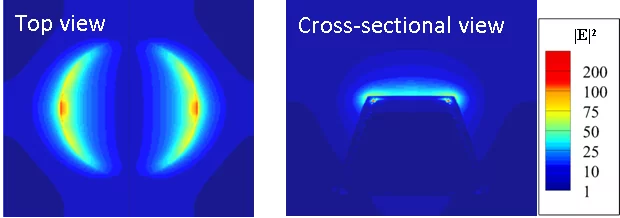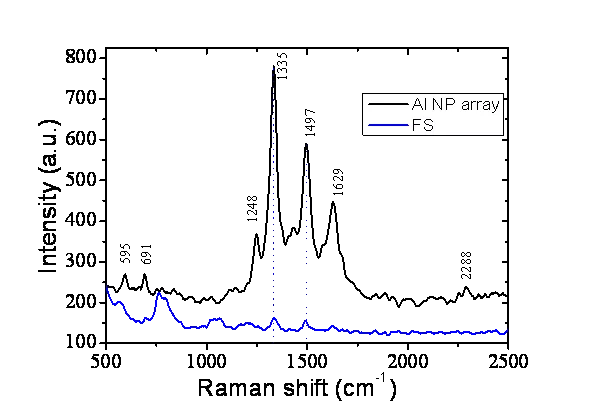Surface-enhanced Raman spectroscopy (SERS) is a powerful tool for enhancing the inherently low Raman scattering cross-sections of molecules, enabling detection down to single molecules. The major mechanism of the SERS effect arises from electromagnetic field enhancement in the vicinity of metallic nanostructures when they are excited at their surface plasmon resonance.
Our aim is to increase the enhancement factors of the SERS technique by developing novel designs and fabrication methods as well as using different excitation wavelengths ranging from UV to NIR. The objective of the project is to design, fabricate and analyze optical properties of metallic nanostructures and to perform Raman spectroscopy experiments of biomolecules. In particular, our current focus is deep-UV surface-enhanced resonance Raman scattering on aluminum nanostructures. We have recently demonstrated that this technique is a highly useful analytical technique for ultrasensitive and label-free detection of biomolecules in real time.




